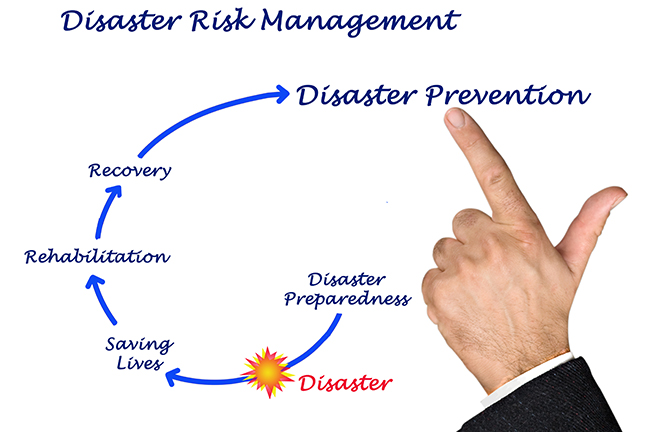Enhancing social resilience

Disaster risk management Photo: TUCHONG
If the fundamental basis of a fulfilling life is security, then for social development tasked with ensuring and improving public wellbeing, the onset of the era of uncertainty underscores a facet of social development that cannot be ignored, namely, the dimension of resilience.
The resilience of society signifies its capacity to survive disasters and crises, and quickly return to normalcy. Modern society places much emphasis on efficiency, often overshadowing the significance of resilience. For example, efficiency is undoubtedly improved as division of labor becomes increasingly fine-grained. However, the malfunction of one single component can cause a system-wide crisis. The rise of the risk society compels attention to the resilience dimension.
First, it is important to firmly grasp what remains unchanging amid various uncertainties. The bottom line of social development in an era brimming with risk is to always prepare for extreme situations with an awareness of eventuality, so that society does not collapse and is able to ensure the safety of its members in case of crisis. However, existing preparations are far from adequate largely due to the long-standing prioritization of efficiency and the habit of maximizing flow and minimizing stock in resource utilization. In fact, retaining “redundancy” is not necessarily a disadvantage, much less a fault, but a necessity in the present day.
Second, substitution and diversity should be emphasized. The survival and development of society necessitate the fulfilment of certain basic functions. However, the specific functional component to fulfil these functions can be substituted for. Enhancing social resilience requires this potential for substitution, so that when one functional component needed to a perform a certain function is destroyed by a disaster, other functional components can take its place. Substitution is closely linked to diversity. In fact, alternatives arise from diversity. To increase social resilience, it is necessary to provide people with as many options as possible, even if efficiency may be somewhat compromised.
Furthermore, the ability of communities and social organizations to act autonomously under the rule of law should be stressed to enhance society’s self-adaptive capabilities. Resilience is essentially adaptability. It is an ability to flexibly adjust and adapt oneself to changes in the environment or their own constituent parts.
Society is more capable of adapting to environmental changes and recovering from traumatic events when grassroots communities are highly organized and social organizations are well-developed and active. Communities and social organizations should be viewed not only as objects to be built and nurtured, but also as subjects capable of autonomous action under the rule of law. They should be empowered to take immediate action on their own initiative in the face of crises in order to overcome difficulties.
It should be noted that underlining society’s ability to act autonomously does not mean shifting the responsibility of strengthening the resilience dimension of social development away from the government. In fact, a powerful, efficient, people-centered government that is capable of promptly addressing social crises and responding to the needs of its people plays a crucial role in ensuring the unchanging conditions amid uncertainties, fostering diversity and the potential for substitution, and developing, leveraging, and regulating society’s capacity for autonomous action. Close, positive, and effective interaction between society and the government as well as the mutual trust formed through such interaction are also indispensable.
Feng Ting is a professor at the Party School of Zhejiang Provincial Committee of CPC.
Edited by WANG YOURAN

 PRINT
PRINT CLOSE
CLOSE